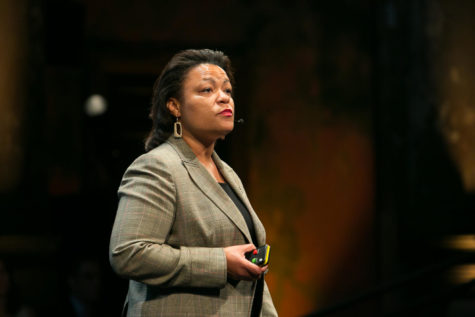After mayor recall fails, city looks forward
March 29, 2023

On Thursday, March 23, Governor John Bel Edwards announced the effort to recall New Orleans Mayor Latoya Cantrell had failed.
The movement netted 32,000 documented signatures, of which approximately 27,243 were valid. In order for a recall to proceed and for a mayor to be forced out of office through a referendum, the local government requires a minimum of 50,000 signatures from registered voters.
Edwards said that he “won’t be calling an election,” because “the threshold was not satisfied,” according to 4WWL.
Cantrell released a statement soon after the publication of recall results, underscoring her resilience to the stress of the event and informing Orleans Parish citizens of her goals to advance the city.
“Now, with the divisiveness of the failed recall campaign officially behind us, we must heal and recommit ourselves to working collaboratively to continue the progress we’ve made towards reducing crime, increasing public safety, building a more sustainable and resilient city and creating economic and job opportunities that benefit all of our people,” Cantrell said.
Statistics about the rejected signatures were released once the recall was officially called off. For a signature to be registered, individuals must follow a series of specific requirements that ensure the authenticity of the vote, and there are many instances in which signatures can be disqualified. For example, if signatures are dated after the deadline, include mislabeled title pages, use words of profanity, exclude certain areas of data or are left blank, the signature will not be counted.
Many recall signatures were handwritten. Rosalind Cook, a Southern Politics professor at Tulane University, said that there “were signatures handed in with Disney character names” and other fictitious references.
Cook, who spent part of her career working for former New Orleans Mayor Ray Nagin, said “It’s a challenge to run an urban city yet or an urban community at this time.”
“Many people don’t think she’s done a lot for the improvement of the community,” Cook said, but “although the mayor is the number one official, it takes more than just the mayor to work on problems.”
Political science professor Scott Nolan has also paid close attention to the recall. “Mayor Cantrell is being recalled at a time when there is significant debate about what makes voters unhappy and who is responsible for that unhappiness,” Nolan said.
“Some might blame the aftermath of Katrina, some might blame COVID. Some might blame institutional processes beyond the mayor’s control for things that make people upset about New Orleans. And that Mayor Cantrell is just the latest mayor.”
New Orleans citizens have continued to demonstrate a variety of responses to the failure. But many have started to think forward, like Cantrell herself.
Addressing this event as pivotal during her time as mayor, Cantrell said that her “call to action now is for everyone to stay focused” and to “do the business of the city of New Orleans,” according to WDSU News.
“I think that a lot of what people are upset about comes from decades of processes that the mayor can really do very little about,” Nolan said, adding that he remains optimistic.
This “gives the mayor an opportunity to turn the page and strategically work from a little bit of a blank slate,” Nolan said, in order to “build a different relationship with the politicians and the voters of New Orleans.”






















Leave a Comment